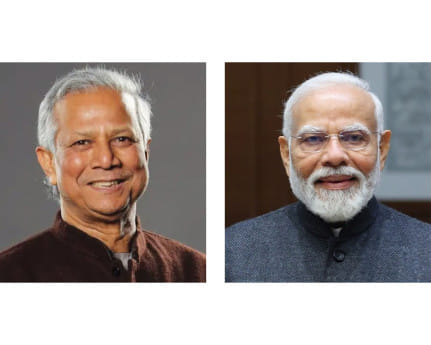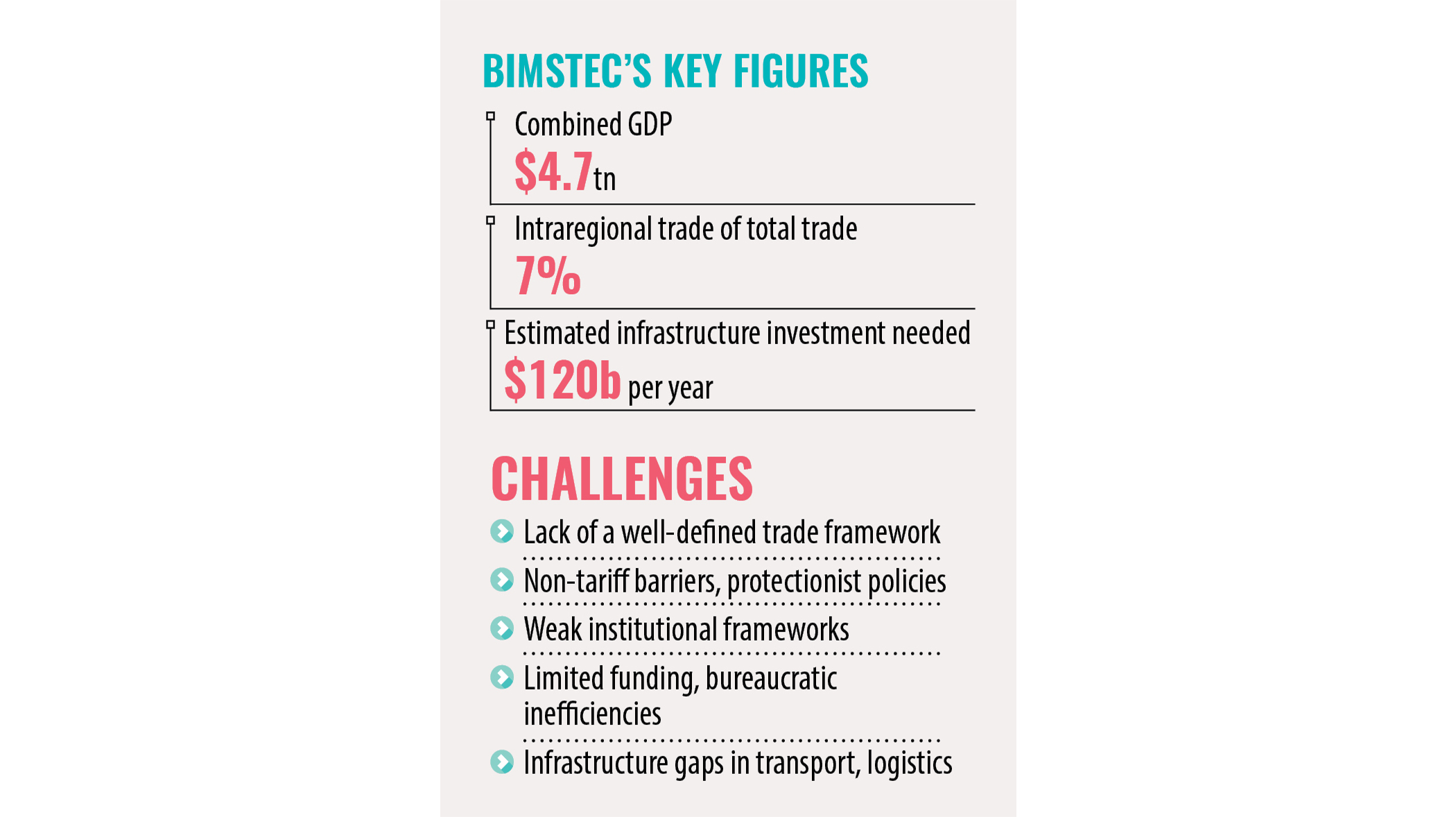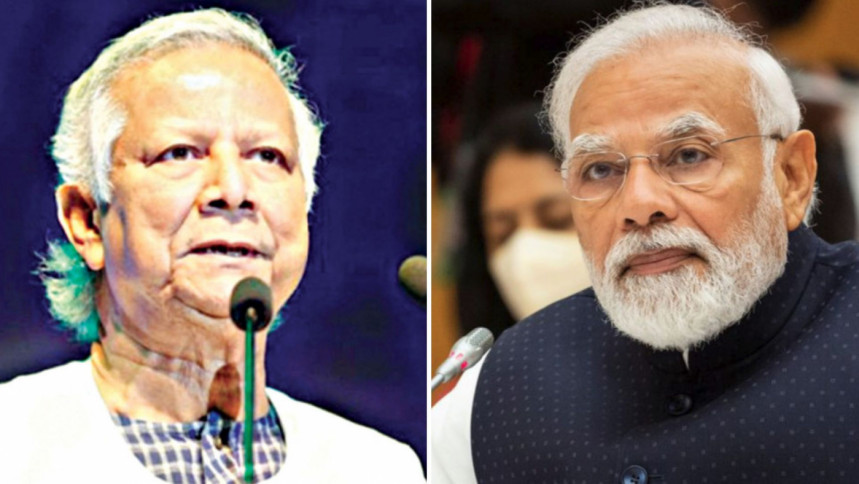BIMSTEC 2025: Yunus-Modi bilateral meeting unlikely

Chief Adviser Muhammad Yunus and Indian Prime Minister Narendra Modi are unlikely to hold a meeting on the sidelines of the BIMSTEC summit on April 2-4, putting a damper on the possibility of a thaw in the currently icy bilateral relationship between the two neighbouring countries.
Dhaka and New Delhi were working positively for such a meeting in Bangkok but the latter has yet to tell anything definitely on Dhaka's diplomatic approach, The Daily Star has learnt from people with knowledge of the matter.
"I don't have any update to share at this point in time," said Randhir Jaiswal, spokesman for India's external affairs ministry, during the weekly media briefing when asked about the possibility of Modi-Yunus bilateral meeting in Bangkok, reports our correspondent in New Delhi.
Given the acrimonious bilateral relationship at present, it is unlikely that there will be a meeting between the two countries' heads of government, according to people informed with the proceedings in Delhi's South Block.
A diplomatic source in Dhaka too made a similar comment.
They, however, did not rule out the exchange of pleasantries between the two leaders as all the leaders attending the summit will be around each other on more than one occasion.
"But nothing more than that is expected," said an Indian government official.
Earlier, there was another possibility of a bilateral meeting between Yunus and Modi on the sidelines of the UN General Assembly in New York in September last year. However, that did not happen as Modi had left New York before Yunus arrived.
Bangladesh's Foreign Adviser Touhid Hossain and Indian External Affairs Minister S Jaishankar, however, held meetings on two occasions: once on the sidelines of UNGA on September 23 last year and then on the sidelines of the 8th Indian Ocean Conference 2025 in Oman on February 16.
The two countries also held a Foreign Office Consultation on December 9 last year.
"There might be statements from political figures but our leadership is all for a good relationship with India -- we have interdependence on many aspects," said a foreign ministry official.
Relations between the two countries soured after the ouster of former Prime Minister Sheikh Hasina on August 5 last year and her eventual fleeing to India the same day.
Since then, the Indian government drastically reduced the number of visa seekers in Bangladesh. It also did not respond to Dhaka's official request for Hasina's extradition.
New Delhi repeatedly expressed concerns over the repression of minorities in Bangladesh, and Dhaka responded by saying that those statements were akin to interfering in the internal issues of Bangladesh.
Bangladesh also accused sections of the Indian media and political figures of exaggerating reports of minority attacks and making provocative remarks.
Chief Adviser's Office repeatedly said that the majority of the attacks on minorities, mostly Hindus, were not religious in nature but political.



 For all latest news, follow The Daily Star's Google News channel.
For all latest news, follow The Daily Star's Google News channel. 

Comments